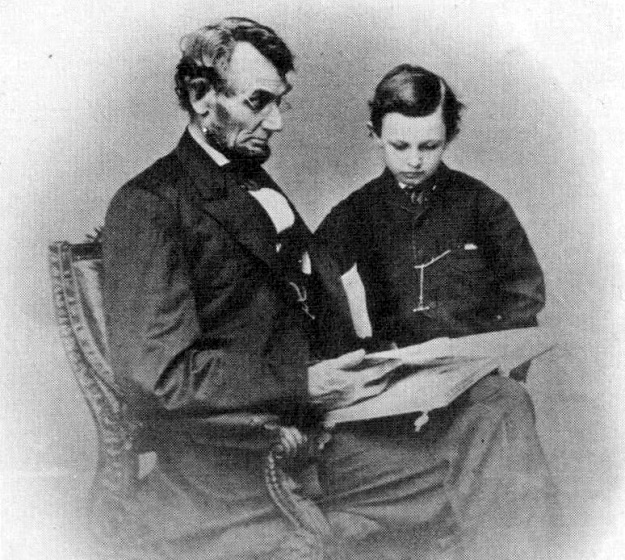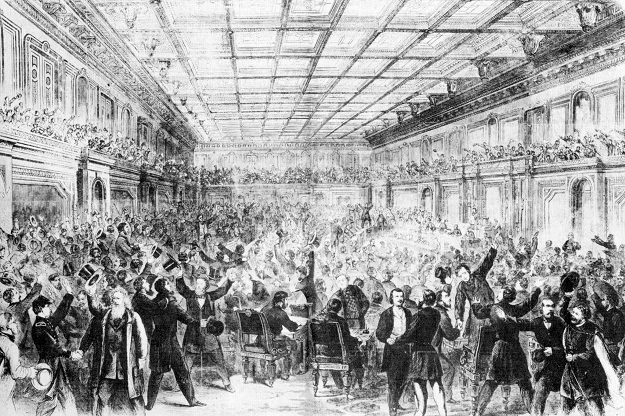Best Picture breakdown: ‘Lincoln’
By John R. Schmidt

Best Picture breakdown: ‘Lincoln’
By John R. SchmidtAbraham Lincoln is a filmmaker’s favorite. He’s been the subject of almost as many movies as Al Capone.
The reason for this is clear. Honest Abe is America’s secular saint. Everybody wants a piece of him. Republicans have used the Spielberg film to remind the public that their party ended slavery. The Democrats’ response has been, “What have you done for us lately?”


As a historian, I’ve seen many actors portray Lincoln. Daniel Day-Lewis is as good as any of them, and maybe the best. He captures all the complexities of his subject. But better you watch him do it than have me try to explain it.
(Much comment has been made about DD-L’s voice. Because he’s such a commanding figure in our history—and because he was as tall as a basketball player—we assume Lincoln sounded like James Earl Jones. However, contemporary reports say the real Lincoln’s voice was high, thin, and sometimes shrill. DD-L has nailed it.)
Like DD-L, Sally Field is up for an Oscar, though in a supporting role. For my money, she’s a bit over the top in her playing of Mary Lincoln. Or maybe Mary Lincoln is just a disagreeable character.
Tommy Lee Jones is a nominee for Best Supporting Actor. As radical Republican leader Thaddeus Stevens, he has the kind of flashy role an actor can really sink his teeth into. Personally, I preferred David Strathairn’s restrained, un-nominated performance as Secretary of State Seward.
John Williams again does the music for a Spielberg project. Williams made his name with swashbuckling scores. But here, befitting the movie, he’s more Copland than Korngold.
Though the subject matter is serious, the movie has humor. Many of the chuckles come courtesy of Honest Abe’s funny stories. The tale of Ethan Allen and the British privy is alone worth the price of admission.
In the hands of a lesser director than Spielberg, a 150-minute movie about high-level political maneuvering might be a disaster. I’m thinking here of another “President” film from 1944, Wilson. I love watching that movie because it recreates historic events I’ve read about, dreamed about, and taught in class. I also recognized that Wilson is overlong and boring.
I can’t say whether Lincoln deserves the Best Picture Oscar. I haven’t seen all the other nominees. All I can say is that this movie is one of the best history lessons you’ll ever enjoy.

